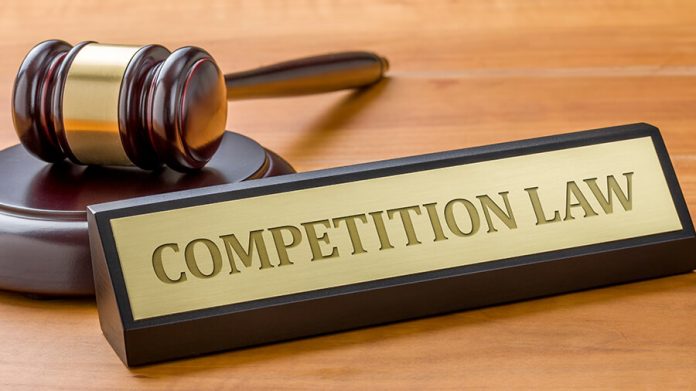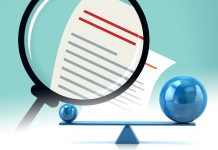This article is written by Pratyush Bhattacharjee, from Symbiosis Law School, Noida. The article talks about big data and its impact on Competition law.
Table of Contents
Introduction
The introduction of big data into the business realm has completely changed how companies strategize and target their audience in contrast to the traditional approaches. big data as a concept first emerged in the early 1990s and it refers to the processing of large chunks of data to compile it into data sets of large commercial value.
The concept has largely become relevant since the beginning of the last decade due to a massive rise in the generation of user data owing to the expansion of internet access during that period of time. To put things into perspective, the total amount of data in the world is predicted to reach 175 zettabytes by 2025. This created an opportunity for large business corporates and even start-ups to exploit this user data to predict market trends and patterns much more efficiently.
How is big data relevant to Competition Law
You may at some point have wondered how social media companies earn money when they are providing you with their services for free. The first explanation that comes to mind is ad revenue but the second is that companies get huge sums from social media and other service providers for their user data. In short, YOU are the product which they are selling.
big data enables companies to utilize user data by compiling it on a large scale to make accurate predictions involving marketing decisions. One of the primary concerns over the usage of big data by enterprises is whether it can create an unfair competitive advantage over their competitors who do not have access to this data.
While some argue that companies holding access to big data create a large barrier to entry because data is difficult to collect, access and process, others are of the opinion that data-rich companies are not an economic threat, but rather an important source of innovation, which policymakers should encourage, not limit. But considering the fact that not everyone in the market has access to the tools and capital required to acquire such a huge amount of usable data is very likely to create a highly concentrated market with high entry barriers. This allows companies to exploit big data by engaging in anti-competitive measures and this is where competition law comes into the picture to ensure fairness in the market.
Big data and Competition Law in the telecommunication sector
The worldwide mobile data traffic was estimated to have reached 30.6 exabytes per month in 2020 when it was just 3.7 exabytes in 2015. This growth in the telecommunication sector over the past few years has also boosted OTT (Over The Top) service providers which have resulted in a rise in intense competition against traditional telecommunication service providers. However, telecom operators have access to rich data sources and large datasets created by their huge customer base which provides them with behavioral data every second of the day which involves messaging patterns, calling, networking along with other types of metadata.
Big data has aided many mainstream telecom operators in terms of development. For instance, Orange Business Services used big data to enhance the accuracy of their churn detection (measuring the rate at which customers exit a product or service). Verizon developed data centers in California to implement precision marketing in 2014. Telefonica Dynamic Insights, a Spanish company, packaged and analyzed data to obtain reliable predictions of user behavior.
Telecom service providers in India such as Vodafone Business Services and Bharti Airtel Ltd, apply big data to identify changing patterns and usage with the help of predictive analytics.
The presence of big data in politics
One of the earliest and well-known incidents involving big data’s application in the political arena was the infamous Facebook-Cambridge Analytica data scandal. A British consulting firm named Cambridge Analytica collected personal data from millions of Facebook users without their consent in 2013 through an app called “This Is Your Digital Life” and a digital survey. After acquiring the data of approximately 87 million Facebook users, Cambridge Analytica exploited the data by analyzing it based on the user’s Facebook likes which allowed them to predict sensitive information such as their skin color, sexual orientation, and their affiliation with the Democratic or Republican party. Cambridge Analytica provided this data to the 2016 Presidential campaigns of Donald Trump and Ted Cruz in exchange for millions of dollars which allowed the Republican party to influence voter behavior through microtargeting.
India is also not impervious to the induction of big data into the political realm. Big data played an important role in the victory of the BJP in the 2019 Lok Sabha election. The 2019 election campaign was created based on the data compiled by a team of information technology professionals who worked very closely with the party workers. BJP micro-targeted voters using data analytics by hiring two consulting firms, Jarvis Technology and Strategy Consulting Private Limited and Association of Billion Minds (ABM). Their strategy was on applying the data to target beneficiaries of central welfare schemes such as “Swachh Bharat”, the aim of which was to achieve universal sanitation coverage, and “Ujjwala”, which offered free cooking gas to poor households. All of these strategies included the BJP workers and analysts working closely to ensure a focused outreach which resulted in the landslide win for the party in 2019.
Big data and Competition Law in light of India
Big data was first recognized as a concern with respect to competition law in 2012 by the Competition Commission of India (CCI) in Matrimony.com Ltd vs Google LLC, where it was alleged by the complainants that Google had abused its dominant position in the online search advertising market through search bias and promotion of Google’s own vertical search sites by blending of its verticals’ results in the organic search results as well as manipulating results in the “online search advertising” market.
Google argued that they had not abused their position by citing Section 4 of the Competition Act, 2002, which states that the sale and purchase of goods need to be involved in cases of ‘abuse of a dominant position’. The CCI, however, dismissed this contention by stating that despite Google providing their search engine services free of cost, in a two-sided market where there is interdependence between users seeking information and businesses advertising their goods and services, information collected from users on every search contributed to Google’s capabilities to generate revenue from targeted advertisements.
The Competition Commission of India in 2015, imposed penalties amounting to Rs 258 crore on Jet Airways, SpiceJet, and IndiGo after an investigation revealed that the airlines were involved in cartelization in fixing fuel surcharges for transport cargo. The airlines had used algorithms that allowed them to fix fuel surcharges at a uniform rate. This act was found to be anti-competitive since it indirectly allowed the airlines to determine the air cargo transport rates which contravene Section 3 of the Competition Act.
The question of fairness regarding the use of big data with respect to competition law was brought up once again by the Competition Commission in 2017 while examining the case of Vinod Kumar Gupta v. WhatsApp Inc. The issue had arisen due to WhatsApp introducing a new privacy policy in 2016, which compelled the user of the App to link their accounts with Facebook which meant that Facebook would have access to the individual’s WhatsApp user data. However, the CCI observed that WhatsApp had allowed its users to opt out of sharing user account information with Facebook within 30 days of the policy changes coming into effect.
It was stated by the CCI in this case that matters of data security and privacy did not fall within the ambit of the Competition Commission and that such breaches needed to be addressed by other authorities.
The Personal Data Protection Bill, 2019 was introduced as a step towards the protection of personal data of individuals in India. The bill made it mandatory for fiduciaries collecting personal data to undergo transparency and accountability measures. Personal data could only be collected by fiduciaries as well as transferred outside India if consent is provided by the individual. However, the bill was heavily criticized due to the fact that it would allow the government to access private data or government agency data on grounds of sovereignty or public order.
One of the biggest challenges that India faces with respect to big data and Artificial Intelligence (AI) is that the Competition Act, 2002 that governs market competition in India, does not include big data and AI within its ambit. The Supreme Court decided in the case of Rajasthan Cylinders and Containers Limited v. Union of India (2014), that the responsibility of ensuring fairness and healthy competition in the market lies with the Competition Commission of India. Therefore, it is imperative to introduce statutes that specifically deal with Data and Artificial Intelligence to make the current Competition Commission better equipped when dealing with cases involving them.
Europe and its condition with big data and Competition Law
Article 16 of the Treaty of Functioning of the European Union (“TFEU”) states that “Everyone has the right to the protection of personal data concerning them”. Reading this along with Article 7 of TFEU which identifies the Commission’s obligation to ensure that the laws and policies are applied in a consistent manner, allows for concentrated enforcement through data protection agencies and the commission.
Gaining an unfair advantage on a competitor by acquiring access to sensitive information is a violation of competition law. A classic example of this can be observed in the case of AKZO Chemie BV v Commission of the European Communities where AKZO Chemie BV, a multinational chemical and fibres group, was fined ECU 10,000,000 for using their dominant position in the market and predatory pricing to eliminate a competing company. AKZO had also paid their customers to reveal the pricing structure of other companies to undercut their pricing.
In the Microsoft/Linkedin merger, the European Commission (EC) had noted that although privacy concerns fell under data protection laws, the acquisition was approved by the EC stating that it could be seen as a non-price competition factor in merger control assessments to the extent that consumers saw it as a significant factor in the quality of the services offered.
Furthermore, a $122 million fine was imposed on Facebook in 2017 by the European Union antitrust regulators when Facebook furnished misleading information during a vetting of its deal to acquire WhatsApp in 2014. The European Commission said that it was technically possible for Facebook to automatically match WhatsApp user’s identities with itself and the staff was aware of this, despite Facebook stating otherwise. However, the imposition of the fine did not reverse the decision of the Commission to clear the acquisition of WhatsApp.
One of the most in-depth investigations of big data regarding competition concerns so far has been the proposed acquisition of the music streaming service, Shazam, by Apple. One of the main concerns of the EC regarding this acquisition was the possession of Shazam’s user data by Apple but it was later found that Apple would only collect the user data from Shazam’s database which the users agreed to share. It was finally held by the European Union Commission that Shazam’s app was not unique in nature and the users could still have access to similar services. The case established a precedent that the quality and uniqueness of the data are also relevant in assessing anti-competitiveness.
There however exists a legal lacuna in the European Union with respect to jurisdiction in cases of competition law involving big data. This is due to the existence of the European Data Protection Board (EDPB), an independent European body that ensures the consistent and cooperative application of the General Data Protection Regulation (GDPR) across Europe. Due to this, the EC has been unwilling to take action which may be seen as enforcing data privacy laws. This can be observed in the 2014 judgment where the EC greenlighted Facebook’s acquisition of WhatsApp where the commission held that ‘any privacy-related concerns flowing from the increased concentration of data within the control of Facebook as a result of the Transaction do not fall within the scope of the EU competition law rules but within the scope of the EU data protection rules’. This however creates a void since the European Data Protection Board does not have the power to authorize or deny mergers like the European Commission.
Conclusion
Nearly all organizations today, irrespective of size, incorporate the use of big data which enables them to target a specific demographic and predict trends accurately. The immense amount of user-generated data has been growing at a tremendous rate since the past decade which has made big data extremely relevant in the business realm.
While the technology allows companies to function and utilize their resources more efficiently, it also gives rise to various issues such as privacy concerns and the creation of an unfair playing field due to the organizations with access to a large quantity and the ability to process this information which raises the entry barrier in the market for smaller competitors who neither possess the resources to acquire data in such a large scale nor the technology required to process and compile it effectively. It is also not uncommon for data analytics to come at the cost of privacy of individuals who often unknowingly provide data to organizations without their consent as witnessed in the Cambridge Analytica scandal.
Big data’s widespread use in organizations all across the world proves the importance of regulatory bodies and laws that are capable of addressing the issues that technology like big data and Artificial Intelligence can create in the field of competition law. It is necessary for the law to keep pace with the technology that changes rapidly and becomes more advanced by the minute, to ensure fairness in the field.
References
- https://blogs.kcl.ac.uk/kslrcommerciallawblog/2020/09/11/competition-laws-challenges-in-regulating-big-data-campbell-whyte/#_ftn3
- https://prsindia.org/billtrack/the-personal-data-protection-bill-2019
LawSikho has created a telegram group for exchanging legal knowledge, referrals, and various opportunities. You can click on this link and join:
 Serato DJ Crack 2025Serato DJ PRO Crack
Serato DJ Crack 2025Serato DJ PRO Crack











 Allow notifications
Allow notifications


